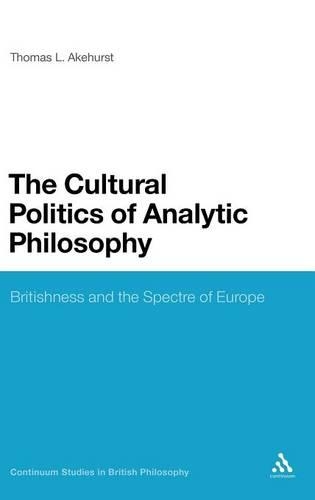
The Cultural Politics of Analytic Philosophy: Britishness and the Spectre of Europe
(Hardback)
Available Formats
Publishing Details
The Cultural Politics of Analytic Philosophy: Britishness and the Spectre of Europe
By (Author) Dr Thomas L. Akehurst
Bloomsbury Publishing PLC
Continuum International Publishing Group Ltd.
25th February 2010
United Kingdom
Classifications
Tertiary Education
Non Fiction
146.40941
Physical Properties
Hardback
220
Width 156mm, Height 234mm
Description
The Cultural Politics of Analytic Philosophy examines three generations of analytic philosophers, who between them founded the modern discipline of analytic philosophy in Britain. The book explores how philosophers such as Bertrand Russell, A.J. Ayer, Gilbert Ryle and Isaiah Berlin believed in a link between German aggression in the twentieth century and the nineteenth-century philosophy of Hegel and Nietzsche.
Thomas L. Akehurst thus identifies in this political critique of continental philosophy the origins of the hugely significant faultline between analytic and continental thought, an aspect of twentieth-century philosophy that is still poorly understood.
The book also uncovers a tripartite alliance in British analytic philosophy, between nation, political virtue and philosophical method. In revealing this structure behind the assumptions of certain analytical thinkers, Akehurst challenges the conventional wisdom that sees analytic philosophy as a semi-detached narrowly academic pursuit. On the contrary, this important book suggests that the analytic philosophers were espousing a national philosophy, one they believed operated in harmony with British thinking and the British values of liberty and tolerance.
Reviews
Akehurst's Cultural Politics offers a skilfully constructed, illuminating and much needed historical study of the attitudes of British analytic philosophers towards the styles of thought associated with their continental' counterparts.' -- Studies in Social and Political Thought
The impact of the First World War on the subsequent development of philosophy is relatively under-studied. Akehurst's valuable contribution calls for further work on this topic, and particularly on the impact of this international controversy on the subsequent simultaneous rejection of idealistic movements throughout the world, and not only in Britain. -- International Journal of Philosophical Studies
Author Bio
Thomas L. Akehurst teaches history and politics at the University of Sussex, UK and The Open University, UK
